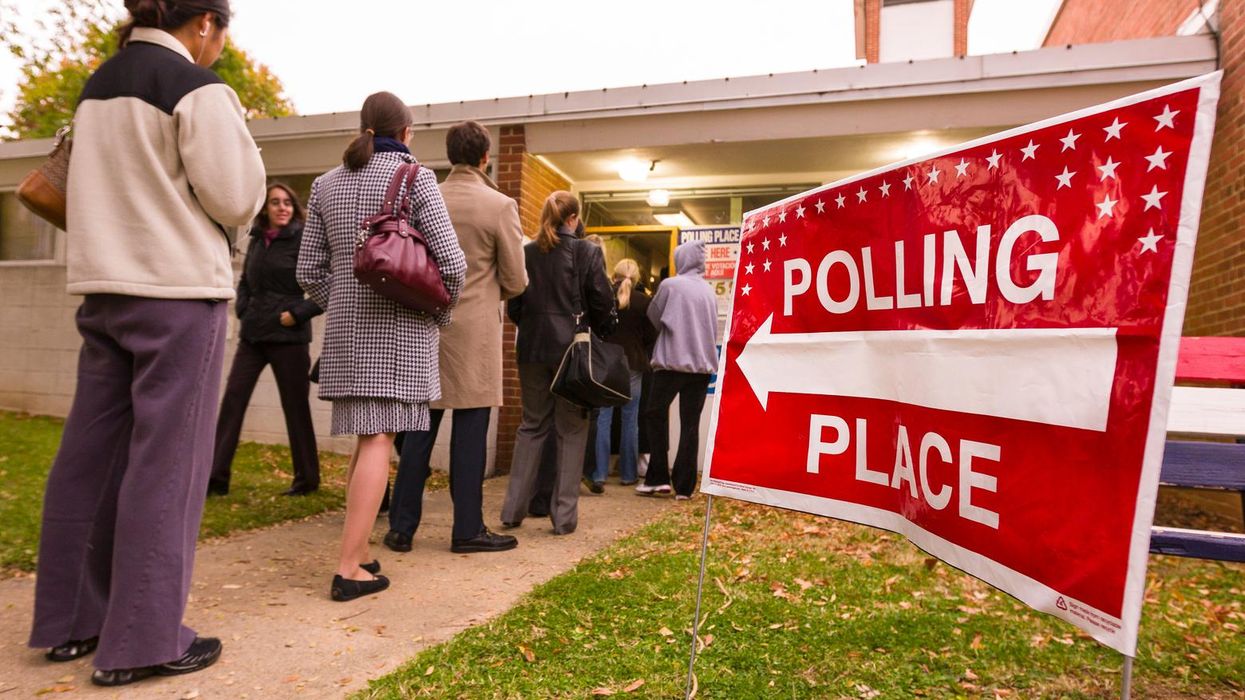'The biggest part of the story': Expert reveals why millions of Dem voters stayed home


For the first time in 20 years, a Republican won both the Electoral College and the national popular vote. One political data expert has a theory why several million voters who showed up for President Joe Biden didn't do the same for Vice President Kamala Harris last week.
In an interview with Rolling Stone's Andrew Perez, former AFL-CIO political director Michael Podhorzer broke down the data behind the 2024 presidential election and found several revealing explanations for why Democratic voter turnout collapsed over the last four years. He said one notable data point that was misunderstood by pundits was that the country didn't move right — rather, the winning coalition that sent Biden to the White House was simply absent from the polls.
"Pick any group you have heard about 'moving right,' say non-college voters," he said. "The category, non-college voters, in 2024 is not the same set of individual non-college Americans who cast ballots in 2020. A very disproportionate share of those 2020 non-college Biden voters stayed home. They didn’t move right; they moved away from the political process altogether," Podhorzer said. "The inevitable effect of that is that the non-college voters in 2024 were more Republican, simply because fewer non-college Democrats bothered to vote."
READ MORE: 'Presumptuous and condescending': Latino journalists warns Dems against scolding Hispanics
"To be clear — I’m not saying that there were no conversions — there were, but that’s hardly the biggest part of the story," he continued. "And to be clear this is not meant to suggest that Democrats have nothing to answer for — if anything they have more to answer for, since all they had to do was get them out to vote again."
Podhorzer went on to opine that Democrats failed to maximize their opportunities as the governing majority over the last four years, noting that they "promised to battle for the soul of America and got little done about that." He also assigned blame to the "mainstream media," saying major news outlets "just checked out" in the latest election cycle and failed to properly inform voters about the danger former President (and now President-elect) Donald Trump posed.
"The big difference, what was most alarming this fall, was how much less alarmed everyone was in the media and civil society than they had been four years ago," he said. "Four years ago, we had honestly forthright coverage of how bad Trump was, and very much less this time around. And although there were excellent side-pieces on that, it was as if the people doing the daily reporting about the election didn’t bother to read it, and just covered it like it was a normal election. People were just not as alarmed."
Aside from media coverage and voter patterns, Podhorzer suggested that one big reason voters were happy to let a disruptive force like Trump back into the White House was at how Americans felt more disconnected from their government and public institutions than ever before. He argued that the 2008 financial crisis fundamentally changed the relationship American workers have with their jobs, and that the Covid-19 pandemic and the resulting economic instability it caused worsened it.
READ MORE: 'One of the biggest policy changes': This 'grave miscalculation' may have been fatal for Dems
"So you have two parties, two approaches — one which says, 'Yeah, we’ve got to burn this system down,' which, in rhetoric, is appealing. But when they hear, 'I can’t get an abortion,' it isn’t anymore," Podhorzer told Perez. "And then you have the party that is saying, 'We will defeat Trumpism,' telling you that they’re doing it to protect those institutions and that way of life that you have lost your patience with, that you’ve lost your support for. And that’s what this is about — and why it keeps going back and forth between who not-loses elections — because [the parties are] not putting on the political menu what people want to buy."
Podhorzer also cast doubt on the conclusions some pundits have drawn that Democrats weren't properly focused on kitchen-table issues important to the working class, and likewise doubted that Democrats' fortunes would improve with increased emphasis on economic messaging. He observed that the political donor class for both parties was united in their foundational philosophy of undermining government regulation of the private sector, and was pessimistic that the flood of corporate money in elections — that took off after the 2010 Citizens United v. FEC Supreme Court decision — would taper off anytime soon.
"[I]t isn’t a tactical error that we’re in this position. It’s a consequence," he said. ”That is a bipartisan agreement that’s been in place for quite a while, and Citizens United opening up the system to even more billionaire money makes it even more difficult to imagine that changing."
Click here to read Podhorzer's interview with Rolling Stone in full (subscription required).
READ MORE: Democrats had an 'economic populist message' but voters were 'utterly indifferent': columnist